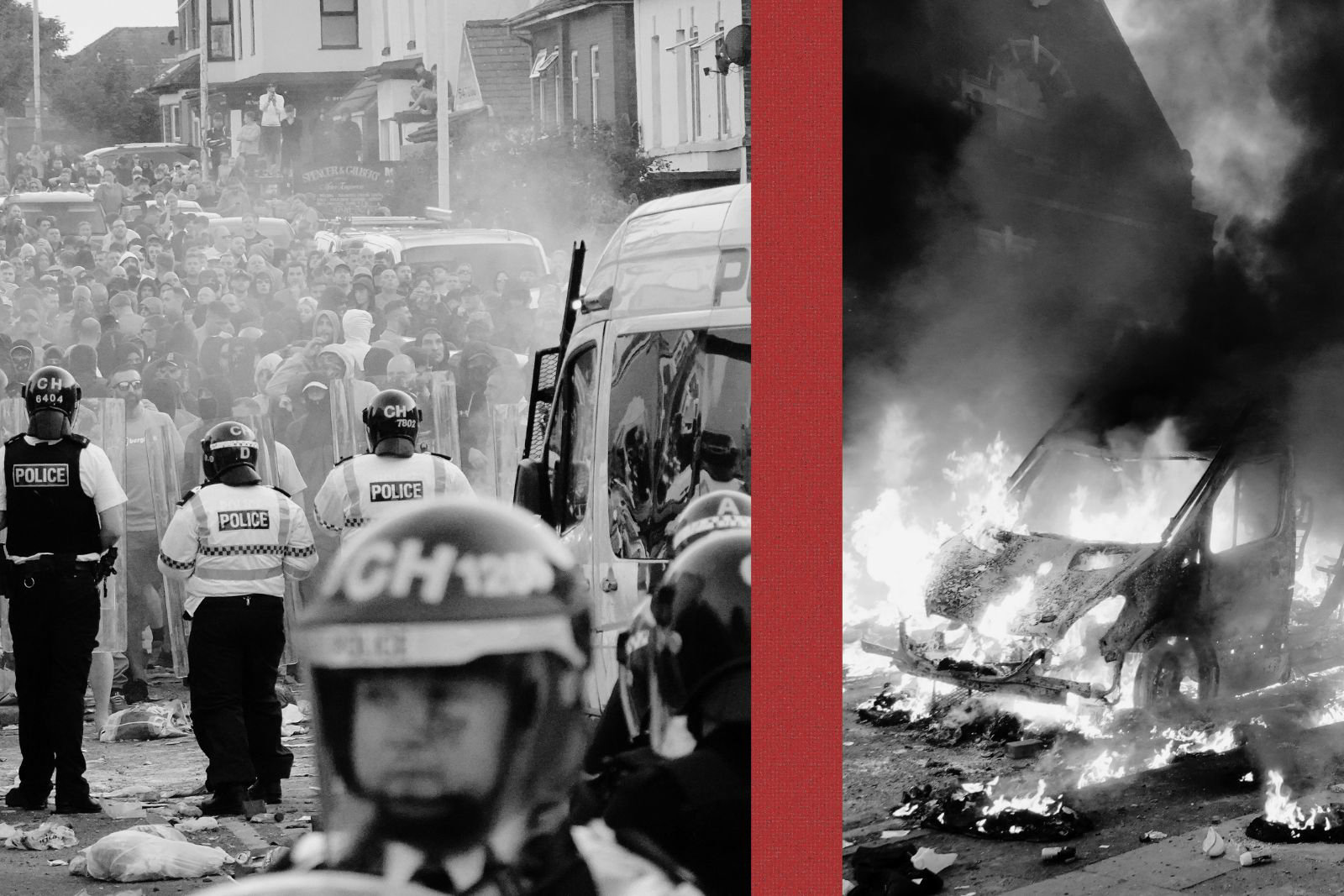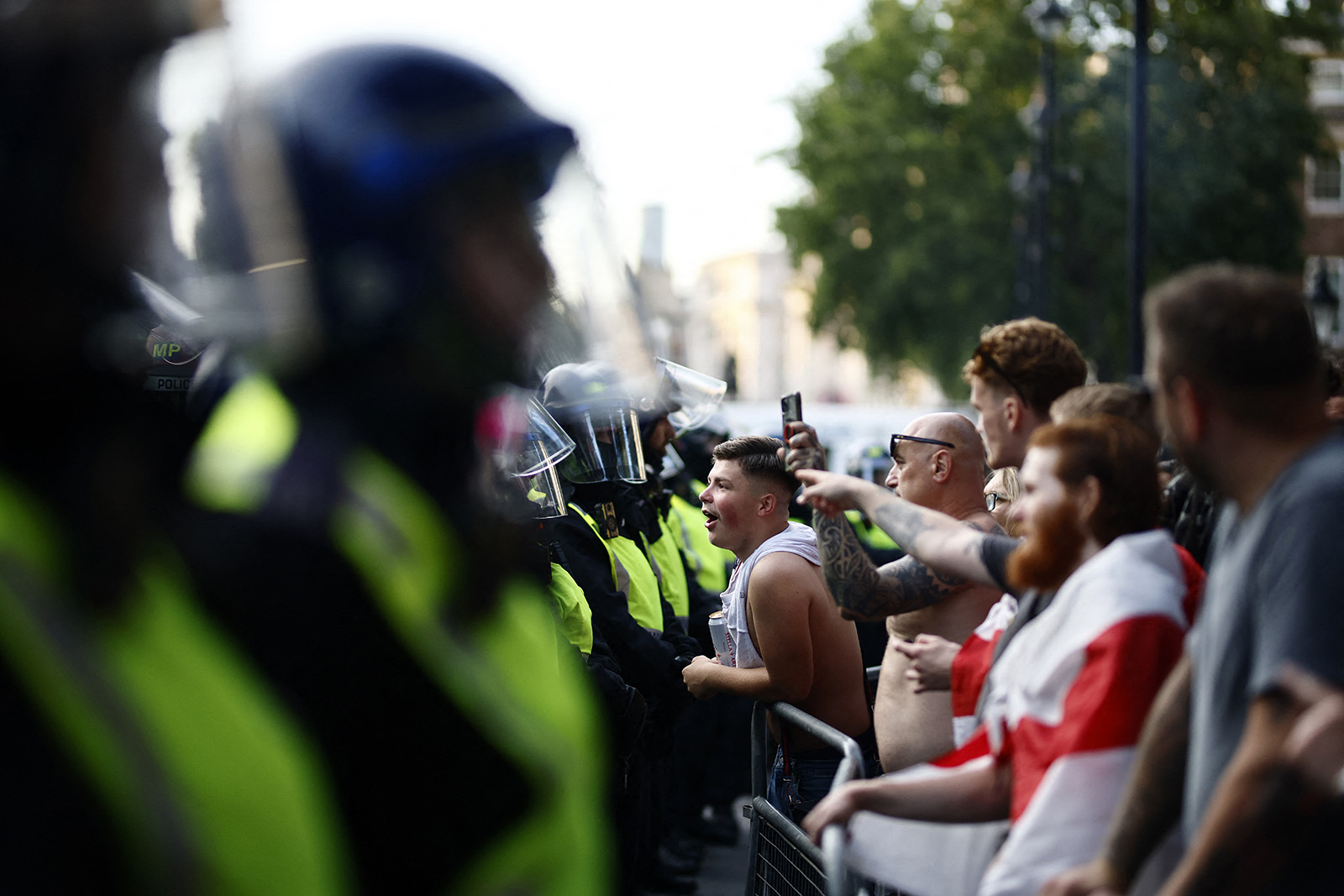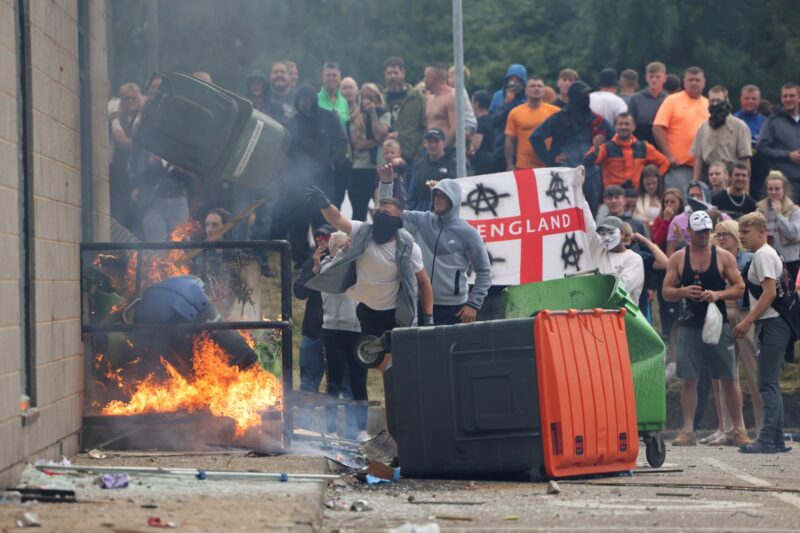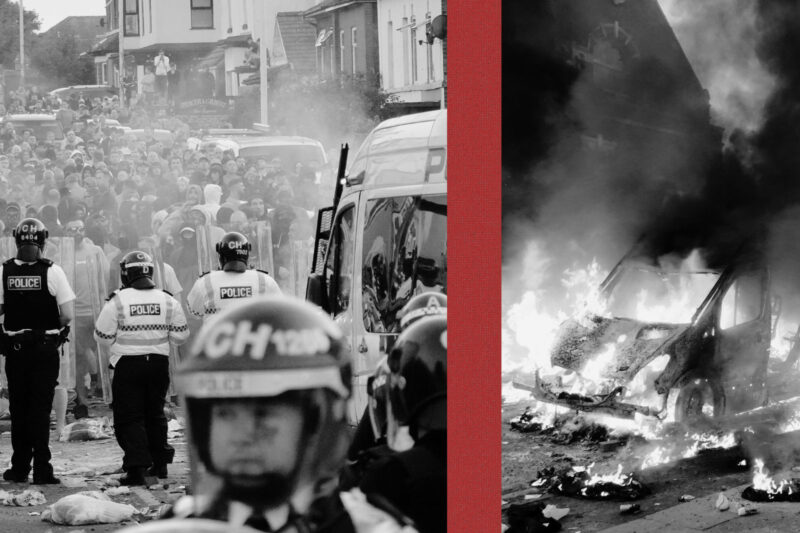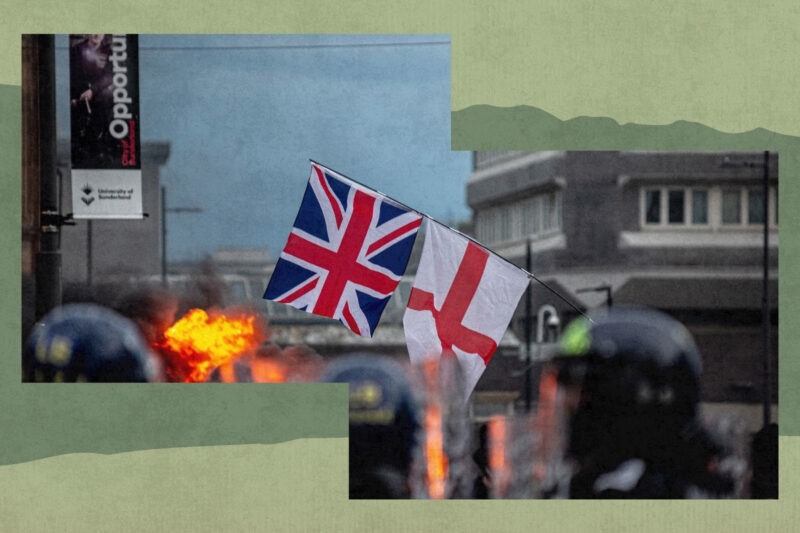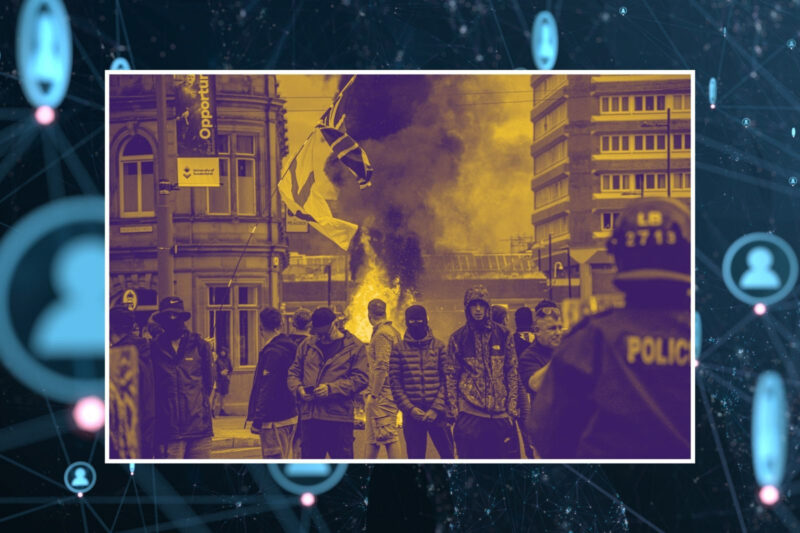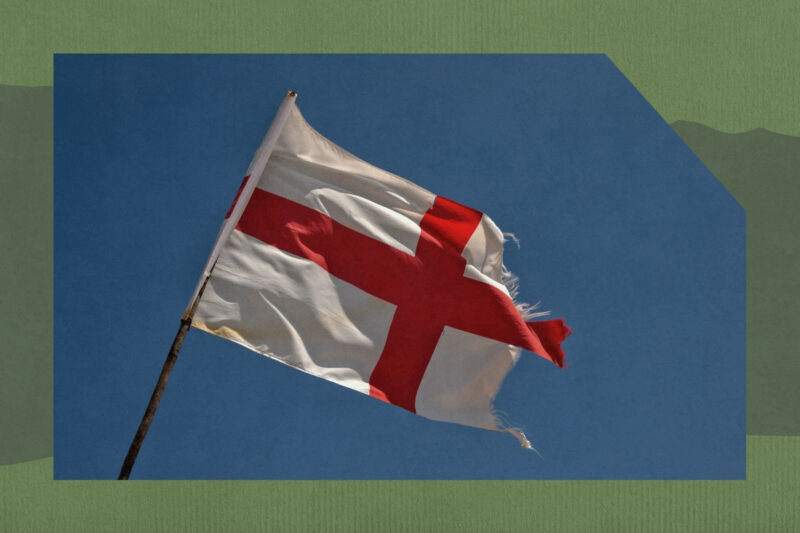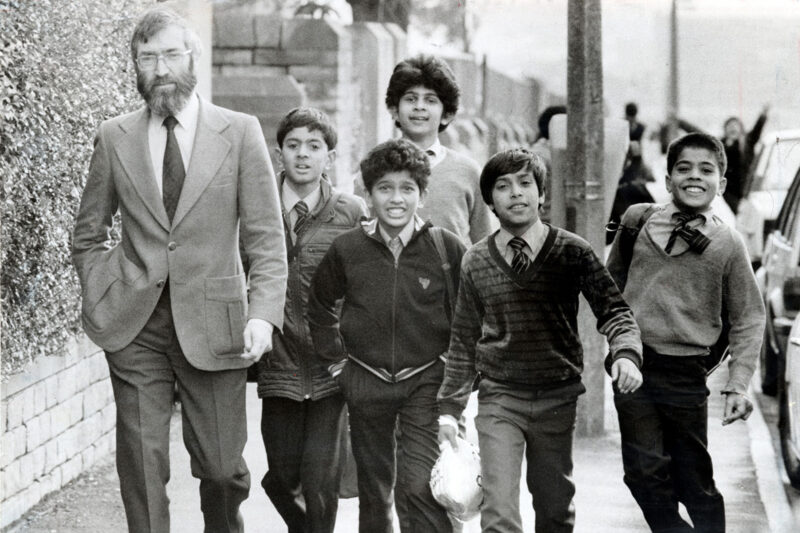The 2024 riots could be repeated — any time, anywhere
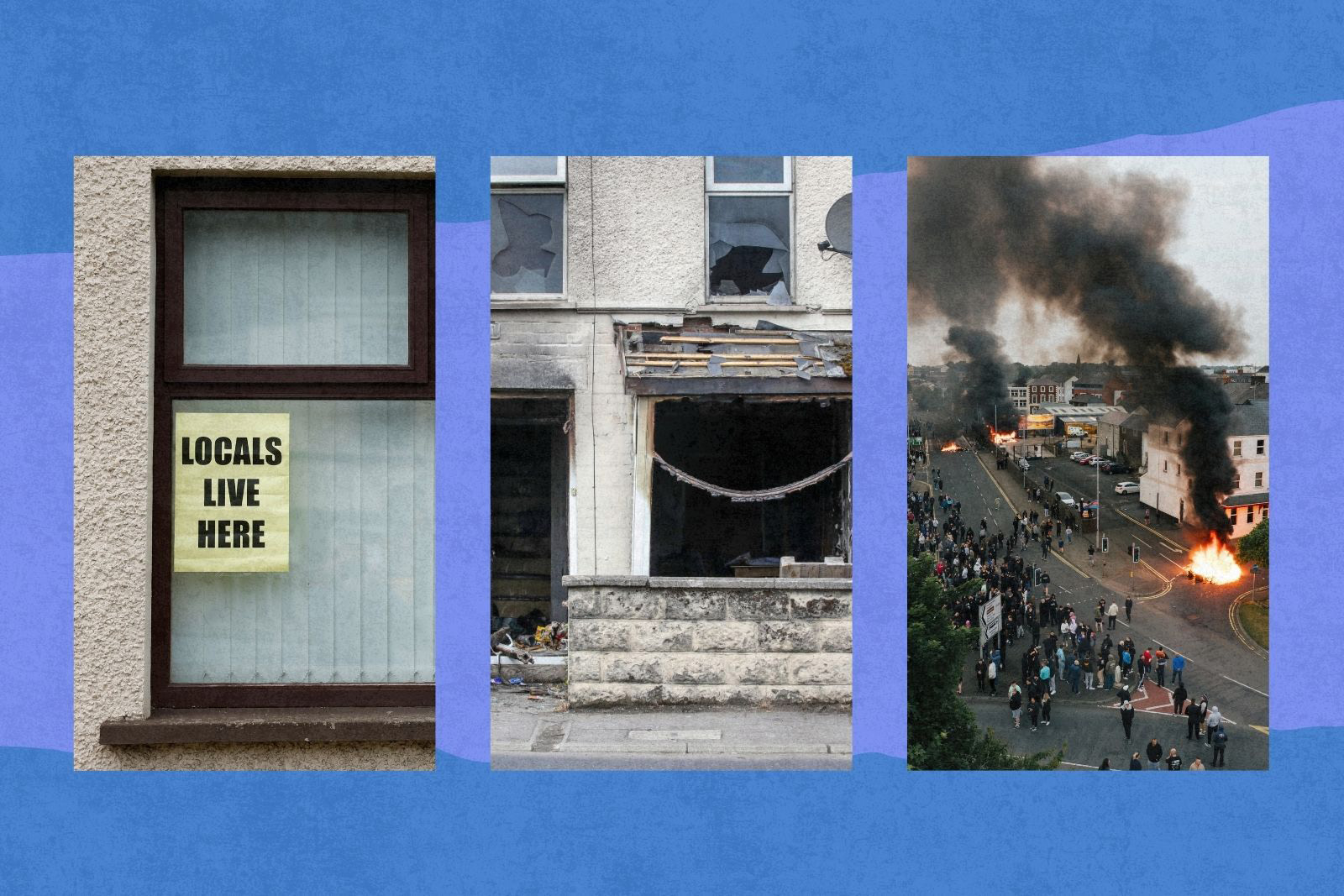
The demonisation of immigrants and minorities has polluted every level of our political conversation and made us all less safe
Kevin Rous, a Filipino worker, was on a night shift at the Wrightbus factory when his family home was firebombed. His wife and two children, aged five and nine, were asleep when their home was set ablaze. Not far away, Raymond Labaniego, also from the Philippines, barricaded himself inside his home as a mob smashed windows and the front door.
“They were screaming outside,” Labaniego told reporters. “They threatened to kill us. It was terrifying.”
Neither man had committed any crime. They were simply people of colour living in the Northern Irish town of Ballymena, targeted in a campaign of anti-immigrant violence that began in early June when two Romanian boys were charged with the attempted rape of a teenage girl.
In a bid to protect themselves, some residents taped yellow A4 sheets to their windows bearing the words “LOCALS LIVE HERE”, hoping they would deter attackers.
The violence bore chilling similarities to the riots that tore across the UK in the summer of 2024, after the murder of three young girls at a dance class in Southport, Merseyside. False claims that the killer was a recently arrived Muslim immigrant spread rapidly on social media. The next day, the town’s mosque was pelted with bricks and local businesses were targeted. Over the next week, disorder erupted across England and Northern Ireland.
In Middlesbrough, a group of men erected a checkpoint, stopping cars and interrogating drivers, demanding to know whether they were white or English. In Tamworth and Rotherham, attempts were made to set fire to hotels housing people seeking asylum. Across nearly 30 towns and cities, a wave of hate-fuelled unrest crested.
Politicians and the media paid the usual lip service to community cohesion and tackling misinformation. Far more noise, however, was made about immigration. The UK was in the middle of a “summer of discontent”, said the Mail on Sunday in early August, blaming government immigration policies. In September 2024, Home Secretary Yvette Cooper vowed to bring net migration down, clear immigration backlogs and end the use of asylum hotels.
The government took a tough-on-crime approach after the riots, quickly jailing people who took part. Few dared utter the words “racism” or “Islamophobia”, though, and the hatred that underpinned the violence hasn’t gone away.
In January, seven London mosques were daubed with anti-Muslim grafitti. In the following months, others were attacked in Luton, Aberdeen and Sheffield. In April, Muslim graves in Watford were vandalised. In June, worshippers were evacuated from the Belfast Islamic Centre when its windows were smashed and a bomb was thrown inside.
As Hyphen has reported, such events form the foundation of the ongoing fear and unease still felt within the country’s Muslim community. They also show that the events of summer 2024 could be repeated at any time.
For many older Black and Asian people, the 2024 riots recalled an era when groups such as the National Front roamed the streets and facing racist violence was a grim rite of passage. Back then, the far right distributed printed newspapers in public and fought pitched battles with anti-fascists. Today, their ideological heirs can operate from the safety of their own homes, often turning a profit by spreading hate and lies online.
Welcome to the outrage economy: where racist vitriol is rewarded, misinformation is monetised and riots are livestreamed. Minority groups, immigrants and Muslims aren’t just the targets any more. We are the content. Without us they would not have their TikTok views, Substack subscribers and YouTube followers.
Today far-right figures like Tommy Robinson are amplified by the world’s richest man: Elon Musk, who now controls the X platform. During the riots, he posted that a “civil war was inevitable” in the UK. In their aftermath, he advanced the rightwing myth of a two-tier policing system, in which white people are treated more harshly than members of ethnic minorities.
The online ecosystem propagated by Musk and others has polluted our political mainstream. Polls are showing massive gains for Reform UK. In an apparent effort to court that section of the electorate, Prime Minister Keir Starmer has repeatedly railed against the policies of his Tory predecessors that resulted in large increases in net migration, decrying a “squalid chapter” that he claims has done “incalculable damage” to the UK.
It has been widely ignored that the 2024 riots affected seven of the 10 most deprived parts of Britain. The far right feeds on the despair and deprivation that deindustrialisation has brought, spreading the idea that immigrants are responsible for the difficulties faced by many people in the UK.
More than anyone else, people seeking refuge from war and hardship are bearing the brunt of this toxic conversation. In Epping, an affluent market town in Essex, there have been numerous protests outside a hotel housing asylum seekers, following alleged sexual assaults committed by one resident. That individual is now on remand and awaiting trial, yet the people who still live in the hotel are being held collectively responsible. Bottles and fireworks have been thrown at police and two security guards were recently attacked in what is now being treated as a racially aggravated assault.
While the protests have included local people, far-right extremists have been at the centre of them, including members of such fascist and neo-Nazi groups as the Homeland party, the British National party and Blood & Honour. Similar gatherings have been staged in the past week outside hotels in the Canary Wharf area of east London, Portsmouth, Southampton, Bournemouth, Leeds and Norfolk.
Last week, Reform UK leader Nigel Farage spoke of “civil disobedience on a vast scale”. Deputy Prime Minister Angela Rayner has warned of a potential “summer of riots”. Meanwhile, politicians and pundits casually use words such as “tinderbox” and “powderkeg”, as if they are powerless to do anything about any of it.
These problems won’t be fixed with aggressive policing and harsher sentences for violent protesters. First, we must change the way we talk about immigration and confront the deep-rooted suspicion, fear and hostility of asylum seekers. There is no silver bullet for the increasing atomisation and declining social trust spreading through our society, but that does not mean we should not try to fix it. This moment requires courage on the national stage. Few have robustly challenged the widespread dehumanisation of Muslims and immigrants. Even fewer are willing to do the hard graft of bringing communities together to have frank conversations on points of difference.
More than anything else, the 2024 riots demonstrated just how combustible our streets are. Continuing to fan the flames of bigotry will only ensure that they spread.
 Newsletter
Newsletter


